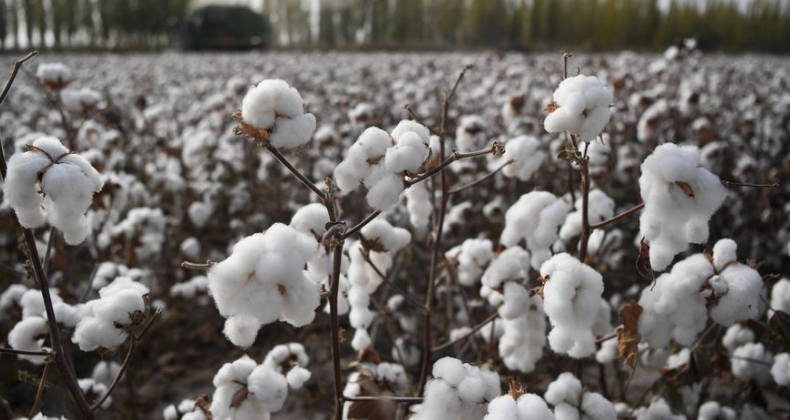Textile Firms Watching Possible U.S. Move on Chinese Region

The U.S. Customs and Border Protection’s potential barring of imports and textiles from China’s Xinjiang region may further spur suppliers to increase manufacturing in other countries.
Accelerating a move
It’s a trend that was underway well before the latest dispute between the Trump administration and China. Many companies started moving at least some production last fall when the U.S. imposed tariffs on imports from China. That’s only likely to accelerate amid pressure from the fashion industry that the U.S. take a stronger stand on forced labor in China.
The customs mandate, known as a Withhold Release Order (WRO), could be imposed as soon as this week and requires that apparel imports to be re-exported or destroyed if they are linked to forced labor. It’s driven by allegations that the Chinese government is forcing Muslim Uyghurs and other ethnic groups to work in Xinjiang’s cotton fields and textile factories as part of a “re-education” program.
Escalation
The U.S. Commerce Department has already placed nearly 50 companies on the Entity List for involvement in forced labor, essentially banning U.S. companies from doing business with them without a special license. The proposed WRO would escalate a business advisory issued in early July by the U.S. Departments of State, Treasury, Homeland Security, and Commerce that companies with production in Xinjiang risk “the reputational, economic, and legal risks of involvement with entities that engage in human rights abuses, including but not limited to forced labor.”
The stakes are high. Nearly a fifth of the world’s cotton is produced in Xinjiang, giving the apparel suppliers, many of whom are members of the Better Cotton Initiative and other organizations that push for fair labor standards, a vested interest in the region. For example, VF Corp., which owns the North Face, Timberland, Vans and other brands, relies on China for 20% of its production. One report says Uyghurs are working in the supply chains or factories of 82 well-known brands including Gap, Nike and others.
Many brand owners and retailers have long had language in their licensing and supplier agreements regarding such aspects as labor practices and environmental impact of manufacturing, and the current situation is being closely watched. According to one apparel manufacturer, for example, Hasbro recently has held webinars specifically concerning the situation in Xinjiang, defined forced labor and underscored that factories found violating fair labor rules can’t be used. Hasbro executives weren’t available for comment.
“This [the potential WRO] is only going to increase the move of production outside of China because many other countries are now competitive with China and the quality is just as good,” says another apparel licensee, whose company relies on China (but not Xinjiang) for about 25% of its production and is a member of the Better Cotton Initiative, which is committed to fair work practices. “And it’s never good to be too reliant on any one country for your production.”




